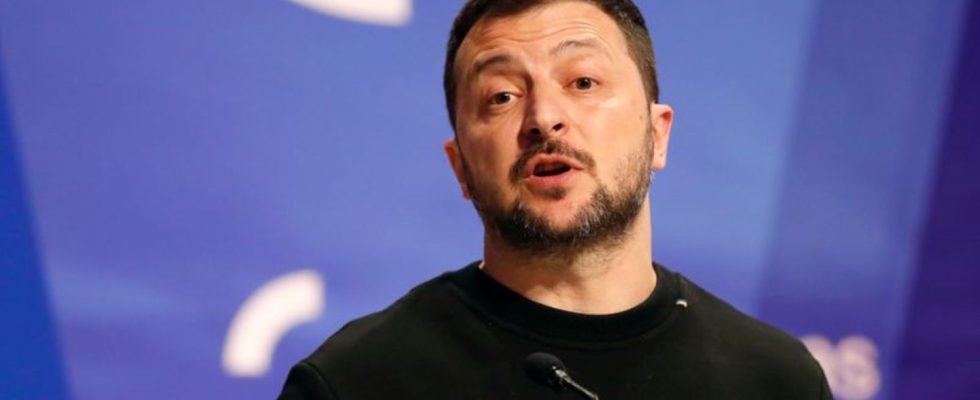Russian war of aggression
War against Ukraine: This is the situation
Ukrainian President Volodymyr Zelenskyj once again appeals to the West. photo
© Mindaugas Kulbis/AP/dpa
Why doesn’t the West protect Ukraine like Israel does? Ukrainian head of state Zelensky poses this question. The events at a glance.
“Together they prevented terror from gaining the upper hand,” Zelensky added. And together they are now working with the help of other countries to prevent further escalation. Israel is not a NATO member, so there was no need to activate Article 5 – which requires mutual assistance in the event of an attack. “And no one was drawn into the war, they just helped protect lives.”
Iran used Shahed combat drones in its attack on Israel, which are also used by the Russian military against targets in Ukraine. “Shaheds in the sky over Ukraine sound the same as in the sky over the Middle East,” Zelensky said. “The ballistics strike the same everywhere if you don’t shoot them.” In his words, European airspace “could have received the protection it needs long ago if Ukraine had received similarly comprehensive support from its partners in launching drones and missiles.” By defending Israel, the free world has shown that unity is not only possible, but also one hundred percent effective.
“The decisive action of the allies prevented the success of terror and the loss of infrastructure and forced the aggressor to cool down,” Zelensky wrote on Telegram after a meeting of the Stavka, the high command of the Ukrainian armed forces. And to protect Ukraine in a similar way, there is no need for Article 5, “just political will.” Kyiv will discuss this with its partners.
Ukraine is preparing for Russia’s offensive
The Ukrainian military leadership is feverishly making preparations for the Russian spring and summer offensives that are expected shortly. This included the heads of the foreign intelligence service and the military intelligence service, Zelensky reported from the Stavka meeting. “It is obvious that the madness in the Kremlin is still strong, and the occupier will try to intensify attacks and offensive actions,” Zelensky said. “We will respond to it.”
The Russian military has increased pressure on various sectors of the Ukrainian front in recent weeks. Ukrainian troops, suffering from a lack of ammunition for their artillery, had to abandon their positions in various places. The military leadership in Kiev had already acknowledged a difficult situation.
Ukrainian places under Russian fire
At least two people have died in a Russian airstrike on the village of Lukyanke in the Kharkiv region of eastern Ukraine. Another four people were injured in the attack, regional military administrator Oleh Sinegubow said on Telegram. According to initial, officially unconfirmed reports, the guided bomb hit a school building.
Further south, Russian units shelled the city of Slovyansk, Ukrainian media reported. Two multi-storey residential buildings were severely damaged when a short-range Grom missile hit. There was initially no information available about any victims of this attack.
EU Commission approves Ukraine’s reform plan
The EU Commission has approved Ukraine’s necessary reform plans for the disbursement of further funds from an aid program worth billions. The Brussels authority assesses Ukraine’s comprehensive reform and investment strategy positively for the next four years, it announced in the evening. This will pave the way for regular and predictable support to the country attacked by Russia.
The EU aid program was approved at the beginning of February. It provides financial aid worth 50 billion euros over a period of four years. 33 billion euros of this are to be paid out as loans, the rest in the form of grants that do not have to be repaid.

